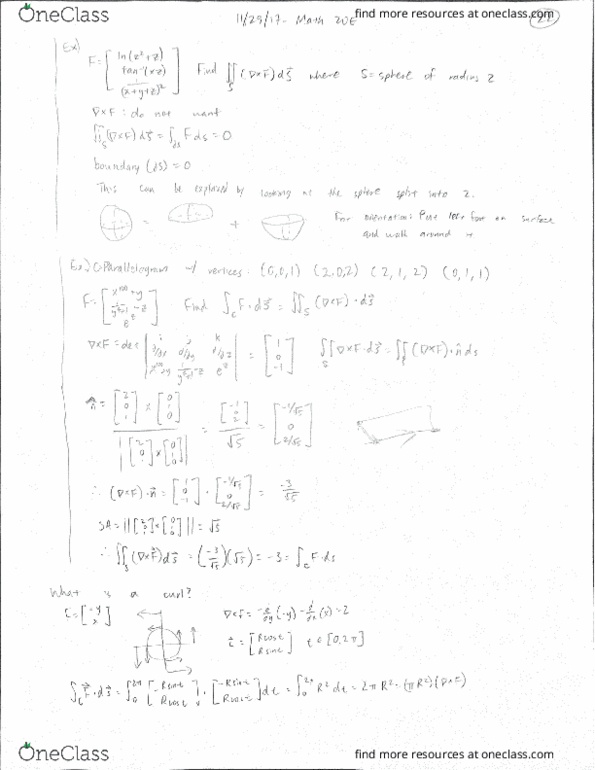Math 20e ucsd
Effective Winterthe Mathematics Department art deco drapes no longer require students take a Requirement Fulfillment Exam to earn transfer credit for Math 20E. Instead, students who have taken a multivariable calculus course that covers Vector Calculus material either one already articulated for Math 20C or one not yet reviewed by faculty that isn't already approved as equivalent to Math 20E on this list will follow the same faculty review process as other transfer equivalency requests. Students will complete and submit a petition for math math 20e ucsd transfer equivalency, math 20e ucsd, including a course syllabus, course calendar, and textbook information. If the course you are requesting is listed as equivalent to Math 20E on this listbut isn't appearing as equivalent on your Academic History, please send us a VAC message and we can manually update your records, math 20e ucsd.
All courses, faculty listings, and curricular and degree requirements described herein are subject to change or deletion without notice. For course descriptions not found in the UC San Diego General Catalog —24 , please contact the department for more information. All prerequisites listed below may be replaced by an equivalent or higher-level course. The listings of quarters in which courses will be offered are only tentative. Please consult the Department of Mathematics to determine the actual course offerings each year.
Math 20e ucsd
Please bring Blue Books and your student ID to the exam. You will not be able to take the exam unless you have a Blue Book and a picture ID. Blue books can be purchased at the UCSD bookstore. You may bring two sheets of notes with you to the exam. You can write or type anything you like on both sides of each piece of paper to help you during the exam. I actually recommend you do this: just preparing the notes will be a great way to help study for the test! Here are two practice final exams: Practice Final 1 and Practice Final 2. These were final exams given in Math 20E in previous years. They both accurately represent the topics that will be covered on our final exam. Please refer to the syllabus and homework pages for the precise list of topics covered by our exam. Kemp will not have office hours tomorrow Wednesday, Regular office hours will commence next Wednesday. Note that there is lecture as usual tomorrow afternoon.
If time permits, topics chosen from stationary normal processes, branching processes, queuing theory.
.
All courses, faculty listings, and curricular and degree requirements described herein are subject to change or deletion without notice. The mathematics department offers a wide range of courses in pure and applied mathematics for its majors and for students in other disciplines. The department offers seven majors leading to the BS: mathematics, applied mathematics, mathematics—computer science, joint major in mathematics and economics, mathematics—scientific computation, mathematics—applied science and probability and statistics, and one leading to the BA: mathematics—secondary education. In addition, students can minor in mathematics or mathematics education. The department also has an Honors Program for exceptional students in any of the eight majors. See the sections on major programs and the other areas mentioned above as well as the course descriptions at the end of this section for more specific information about program requirements and the courses offered by the department.
Math 20e ucsd
If you need even more practice! Office hours. My email is justin math.
Fondant letter cutters
Nongraduate students may enroll with consent of instructor. The Weierstrass theorem, best uniform approximation, least-squares approximation, orthogonal polynomials. Life Insurance and Annuities. Does not count toward a minor or major. Courses For course descriptions not found in the UC San Diego General Catalog —24 , please contact the department for more information. Part one of a two-course introduction to the use of mathematical theory and techniques in analyzing biological problems. This course will cover discrete and random variables, data analysis and inferential statistics, likelihood estimators and scoring matrices with applications to biological problems. Seminar in Differential Geometry 1 Various topics in differential geometry. Game theoretic techniques. Topics include non-linear signal processing, compressed sensing and its extensions, phase retrieval, blind deconvolution, neural networks, non-convex optimization, and optimal transport distances. Graduate Student Colloquium 1 A variety of advanced topics and current research in mathematics will be presented by department faculty. Special Topics in Mathematics 1 to 4 A variety of topics and current research results in mathematics will be presented by staff members and students under faculty direction. Complex variables with applications. Topics will be drawn from current research and may include Hodge theory, higher dimensional geometry, moduli of vector bundles, abelian varieties, deformation theory, intersection theory.
Catalog Description: Vector geometry, vector functions and their derivatives. Partial differentiation.
Locally compact Hausdorff spaces, Banach and Hilbert spaces, linear functionals. Discretization techniques for variational problems, geometric integrators, advanced techniques in numerical discretization. Conservative fields. This course will cover discrete and random variables, data analysis and inferential statistics, likelihood estimators and scoring matrices with applications to biological problems. Required documentation: Course syllabus Weekly lecture topics Textbook table of contents Submission: Submit these petition requests to the Math Department through the online petition portal. Topics from partially ordered sets, Mobius functions, simplicial complexes and shell ability. Statistical Learning 4 Statistical learning refers to a set of tools for modeling and understanding complex data sets. Multivariate time series. MATH A. An introduction to various quantitative methods and statistical techniques for analyzing data—in particular big data. General theory of linear models with applications to regression analysis. You will not be able to take the exam unless you have a Blue Book and a picture ID. Introduction to varied topics in combinatorial mathematics.


The ideal answer